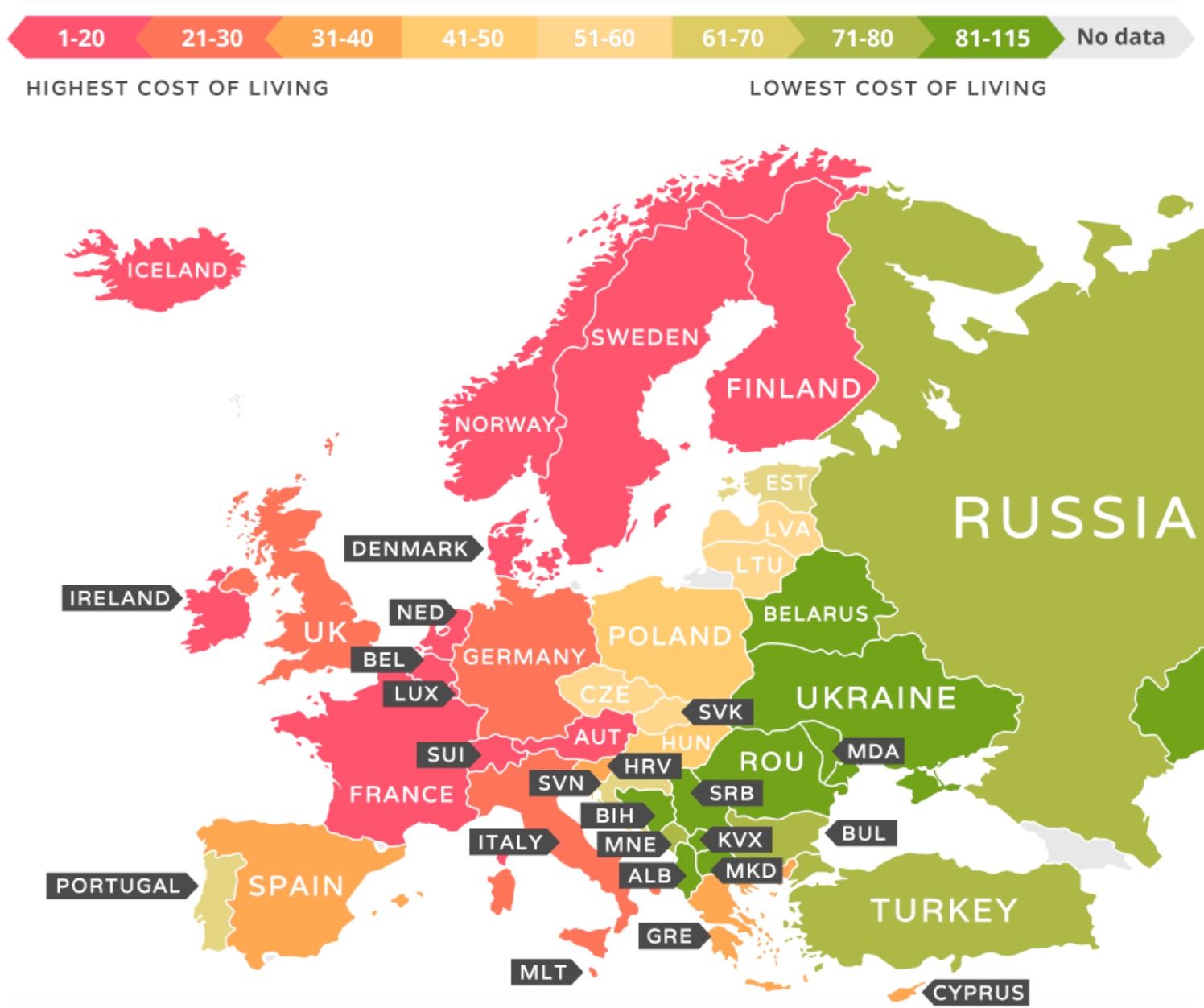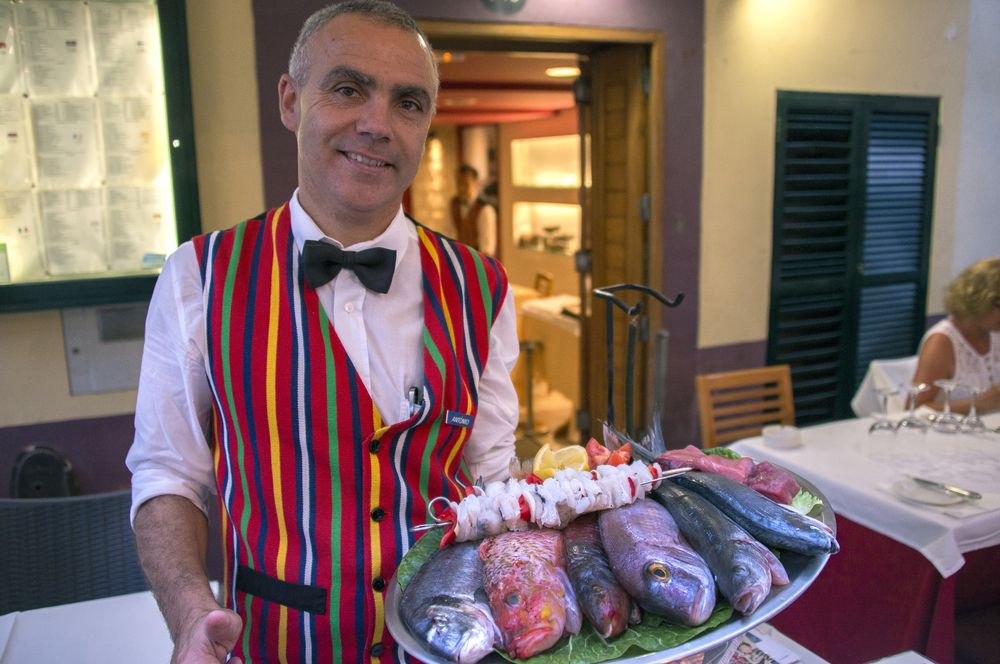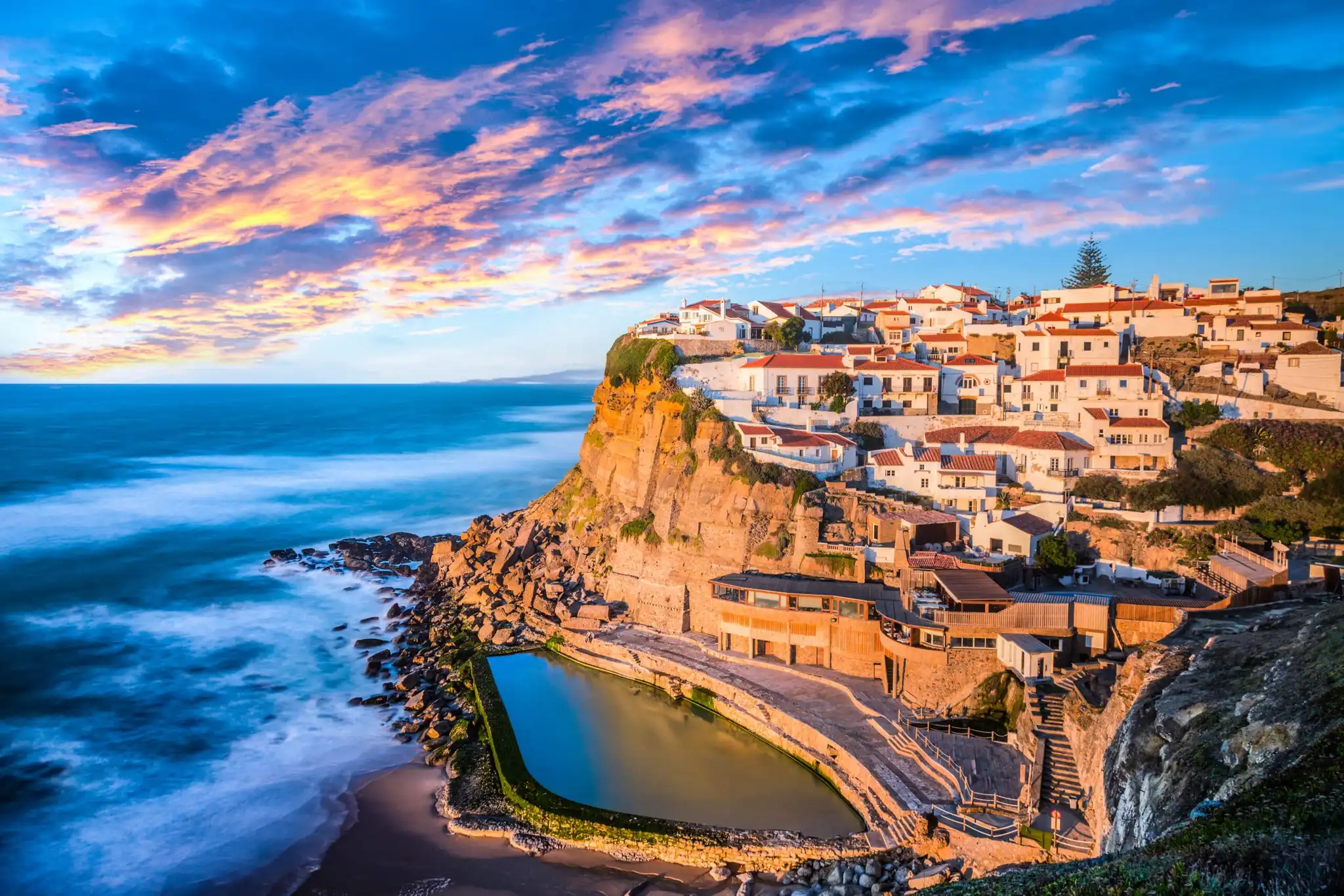There are a number of words in the English language that can cause a crypto hodlers heart to sink at the very utterance of them. I’m sure many would agree that we would be happy to never hear the words: rug-pull, pump and dump, hack, liquidation, margin call, the SEC, depeg, or death spiral ever again.
However, there is one five-letter word in particular that causes people to avoid cryptocurrency altogether, toss laptops out of windows in frustration, and even move countries just to avoid the nightmares and headaches. I am, of course, talking about taxes.
Taxes have been a pain point for many for thousands of years, but have never been as complex as when the authorities started attempting to apply ancient tax laws and frameworks to the new, rapidly changing and innovative asset class known as digital currencies
Cryptocurrencies wear many hats and perform multiple functions that have never before been possible. With the emergence of things like DeFi swaps, airdrops, staking rewards, mining rewards, NFT sales, decentralized lending and borrowing, and using crypto debit cards, it became clear that the existing tax framework was not equipped to handle the complex nature of digital transactions.
The cryptocurrency tax phenomenon is made worse by the fact that most of the people responsible for drafting new tax legislation do not understand the digital landscape well enough to create logical or efficient taxation proposals, leaving crypto users who have thousands of complex crypto transactions pulling hair out over the mess that was just created.
Crypto tax is a classic example of trying to pound a square peg (cryptocurrency) into a round hole (existing tax framework). This has led to many crypto-users, myself included, feeling that it would be easier to immigrate to a new country, as opposed to trying to comply with draconian tax laws in their home country. This article is all about moving to crypto-tax-friendly Portugal and hopes to help you determine if moving to Portugal for crypto-tax purposes is right for you.
Note that this article simply encompasses my personal experience with immigrating to Portugal and is in no way intended as a guide or advice. I recommend reaching out to a relocation specialist like Offshore Citizen to help answer any questions related to relocating.

What You Need to Know Before Moving To Portugal
Moving abroad may sound enticing to a lot of people, but in reality, it is not for everyone. I left my home country many years ago and have met a lot of travellers who have big dreams of living abroad, only to find it isn't for them, then end up moving back home.
There are certain comforts and familiarities unique to each person that can often only be found in their native country. I’ve even encountered people who move back home simply because they miss the food, let alone missing friends, family, and a familiar society.
Before moving to Portugal, I had lived in the United Kingdom, Australia, and Canada, all admittedly similar countries when it comes to things like taxes, business laws, society and culture. Being part of Europe, I had assumed Portugal would be quite similar in many regards to the UK, but was surprised to find just how different it was in a lot of various ways.
I had read that the bureaucracy was of major frustration to many who move to Portugal, and this was no exaggeration. If you plan on moving to Portugal, I hope you have the patience and zen of a monk as nothing happens fast and every official you speak to will give you different answers and advice.
 How it Feels Navigating Pretty Much Any Government Process in Portugal. Image via Shutterstock
How it Feels Navigating Pretty Much Any Government Process in Portugal. Image via ShutterstockI had used the consultation services of three different immigration companies, who all provided dramatically different instructions and advice before I settled on the one that seemed to be the most confident in the success of my residency application.
Key Takeaway- Using an immigration specialist to help your move to Portugal can be very helpful as the process isn’t very “black and white.” There are multiple loopholes and loose requirements. Using a professional can be the difference between your residency permit being accepted or denied.
For myself and my partner, the immigration specialist was worth every penny. There were certain requirements and pieces of information needed that we would have never thought about, things that needed to be included, excluded, verified, or tweaked. Things like:
- Job Category- Does your profession fall into an acceptable or high-value-added category? What are these categories and where you can find them?
- Banking Requirements- We needed a Portuguese bank account, but could not get one without a Portuguese employment contract, and did not work for a Portuguese company. This is where an immigration lawyer's letter can save the day.
- Address Requirements- We needed a stable address that could not be an Airbnb or hotel. We had assumed living in an Airbnb long-term would be acceptable.
- Translated Documents- This one seems like common sense, but we overlooked it. Had our immigration specialist not have officially translated and stamped our documents, our application would have been denied due to everything being in English.
These are just a few of the examples. The list went on to include things like marriage vs civil partnerships, tax statuses, date of entry vs date of application, etc. Although we did hours of research prior to making the move, some of this information is so nuanced and impossible to find that only someone with intimate knowledge of the industry knows the ins and outs.
To elaborate on the job category experience I had, some types of work fall under highly valued occupation categories, while others do not. My job at the time was as a journalist, blogger, and writer. When I had to disclose my profession, I could have listed any one of the three, but my advisor recommended I list journalist as that classified as a highly valued occupation, whereas blogger did not. Details like that, which are unknown to the average person and nearly impossible to find out for yourself, can be the difference between a residency application being stamped or tossed in the bin.
 Employing the Advice of a Professional Provided us With Far More Confidence and a Greater Chance of Success. Image via Shutterstock
Employing the Advice of a Professional Provided us With Far More Confidence and a Greater Chance of Success. Image via ShutterstockGoing back to the frustration regarding bureaucracy, language barrier, and outdated Portuguese systems and process, another large hurdle was registering for the healthcare system. We were turned away from a physical registration office more than once and were requested to apply online. After applying online, we never received confirmation of application, so after 4 months of no news, we went back to the physical office where we were turned away again and given a phone number to call. That phone number was not in service.
After calling a few different phone numbers, and even being hung up on a few times… Yes, this is a real occurrence. Don’t be surprised to hear a sigh on the other end and then a dead dial tone, even when calling a government office. If the person on the phone doesn’t feel like helping you, apparently there are no repercussions to hanging up on people seeking help.
It ended up taking about two and a half years to get on the healthcare system and had issues with healthcare cards being mailed to the wrong address or never sent. We had friends that had been living in Portugal for over 5 years that were also unable to get the process done for various complications.
Then we had situations like residence cards never being mailed, mail being lost or put in our neighbour's mailbox, needing translators, and being told different tax and social security requirements by different government employees, so yeah, the slow bureaucratic pain points in Portugal are real. If we had to do it again, we would have paid the extra money and used a professional service for the entire process of healthcare applications, tax advisory, and social security applications, not just the immigration residency process.
 If I had a Time Machine, I Would go back and Pay More to have the Advisor Assist With The Entire Process. Image via Shutterstock
If I had a Time Machine, I Would go back and Pay More to have the Advisor Assist With The Entire Process. Image via ShutterstockIt may sound simple, but food and lifestyle in Portugal are also quite different from what many of us are used to in the West. For starters, life is a lot slower here, with people seemingly not as career-focused and money hungry as many in Western society seem to be, which is both nice and frustrating. Many businesses will close in the afternoon, close on weekends, and close pretty much any time they feel like it. Our local bar shut down one Tuesday afternoon so the owner could spend time at his daughter’s birthday party.
Service can be slow here as well as it is common for cafe and bar workers to be sitting and having a drink with friends while on shift. This isn’t so much the case for major cities like Lisbon and Porto, but when you get into the more rural hubs, the sense of community is a lot stronger and nobody seems to be in much of a rush, so again, a degree of patience is required if you are used to the hustle and bustle of the city.
 Life Moves A Bit Slower in Parts of Portugal. Image via Shutterstock
Life Moves A Bit Slower in Parts of Portugal. Image via ShutterstockPortugal is a paradise for seafood lovers, but many expats I’ve met, myself included, feel Portuguese cuisine leaves a lot to be desired for those who aren’t fish fans. The dishes are very simple and outside of the major cities, it feels like every restaurant has the same menu options. Most of the restaurants outside of the cities will give you very basic options, you pretty much get to choose between fried beef, chicken, an omelette, toasties, and fries, and that’s about it.
Eating out can be very difficult for vegetarians, anyone with dietary restrictions, and those who like a little variety in their lives. We have found it very difficult to order salads with more than two ingredients, you aren’t going to find many Mexican restaurants or delicious curries in rural areas, and if you manage to find a place that serves sandwiches, you’re lucky if it comes with mayo or sauce.
 Grilled Sardines and Potatoes, a Very Common Dish in Coastal Areas. Image via Shutterstock
Grilled Sardines and Potatoes, a Very Common Dish in Coastal Areas. Image via ShutterstockOf course, the metropolitan hubs like Lisbon, Porto, and places in the Algarve or Funchal have all the fantastic foodie comforts of home to get your fill. At the risk of sounding like someone who overindulges from time to time, I must say that the wine in Portugal is out of this world, not to mention very reasonably priced. I know people who entered Portugal as non-wine drinkers and soon found themselves stacking bottles of Alentejo and Douro wines by the dozen in wine cellars. Then, of course, there is the famous Madeira wine, Port wine, and green wine, so wine lovers are more than spoiled for choice.
Portugal is known for being very safe as well with low crime rates and a high standard of living. The health care system in the country is rated as one of the best in the world, and there are climates suited for everyone. The northern part of the country is a bit on the cooler side with wet and cold winters, while the further south you go can enjoy over 300 days of sunshine per year. There is also the Portuguese island of Madiera to consider for anyone who wants warm weather year-round and loves nature, or the Azores islands, which rival Hawaii in terms of natural beauty.
 A Look at the Azores. Image via Shutterstock
A Look at the Azores. Image via ShutterstockLiving Costs & Accommodation Options When Moving To Portugal
The cost of living in Portugal is one of the biggest attractions for digital nomads and retirees wanting to get the most out of every dollar. It is important to note that costs vary significantly from place to place, I’ve heard nomads complain about how expensive life is in Lisbon or Funchal and say things like “I thought Portugal was supposed to be cheap?”
Obviously, if you want to live in the center of Lisbon or a major hub, you’re going to pay more, but outside of the cities, we found the cost of living in Portugal to be incredibly reasonable.
According to the statistics site Expatistan, the cost of living in the United States is 63% more expensive on average than in Portugal, as of May 17, 2023, while the cost of living in Portugal is 28% cheaper than in the United Kingdom on the same date, making it quite reasonable, indeed.
I was delighted to find that in some smaller coastal or inland cities we were able to get a glass of wine…ahem, I mean juice, at a restaurant for under a Euro and entire meals for around five Euros.
 Cost of Living in Portugal is Cheaper Than Most European Countries. Image via Movehub.com
Cost of Living in Portugal is Cheaper Than Most European Countries. Image via Movehub.comWhen we were living in the Lisbon area we were paying around 1,500 Euro a month for a two-bedroom apartment, but on the island of Madeira, outside of the city of Funchal, we were living in a beautiful two-bedroom apartment with an ocean view right next to a beach for 750 Euro. We had friends living outside of the city of Setubal, south of Lisbon living in a three-bedroom house for less than 700 Euro a month, so yeah, prices vary drastically depending on where you are.
Here are some great sites for finding accommodation in Portugal, I have used Flatio, Idealista, and Airbnb, finding Flatio to be very convenient and helpful:
Though the cost of living is considerably cheaper in most of the country compared to many Western countries, one major consideration is the source of your income. If you are on a decent wage in a Western country, then a good quality of life is possible in Portugal. However, it is quite a different story if you expect to find work in Portugal for minimum wage, do not expect the same quality of life. And that Segues us into the next section.
Getting a Job & Finding Employment Opportunities in Portugal
Working in Portugal may not be an option if you hope to live someplace rural and do not speak Portuguese. It is not uncommon to find people who cannot speak English outside of the touristy areas, so a decent grasp of the local language will be a must.
There is plenty of work for English speakers in the cities and tourist areas, but unfortunately, local salaries leave much to be desired, which is why I mentioned expecting a different quality of living if you plan on earning a local salary.
 There are Plenty of Job Opportunities in the Service Industry. Image via Shutterstock
There are Plenty of Job Opportunities in the Service Industry. Image via ShutterstockLike many countries, the minimum wage in Portugal is not quite high enough to be able to afford many luxuries, with it being common for locals to have multiple roommates, live on the outskirts of cities, or even still live with their parents well into their 30s.
Compared to the cost of living, average and minimum wage salaries can make it difficult to cover costs of living, let alone enjoy a social life that revolves around eating and drinking out. It is most common for those who move to Portugal to either own their own business, have high-value and paying occupations, work remotely, or be retired, not many expats move to Portugal with the intention of trying to find local work.
If you are someone who wants to take the chance and find work, Lisbon, Porto and places in the Algarve will be your best bet, with much of the Algarve only having opportunities during tourist season. Job sites can help you find local jobs, but from my experience, word of mouth still travels far in the country. Anything from finding work to accommodation, asking local shop staff, bartenders and restaurant owners can be helpful if you are looking for anything.
If you do decide to take the online job site route, here are a few resources that could help:
Job search websites:
- Empregos Online
- Indeed
- Learn4Good
- Net Empregos
- SAPO Emprego
Public job sites:
- Portuguese Public Employment Service (Instituto do Emprego)
- Recruitment agencies:
- Adecco
Other resources:
- EURES, the European Job Mobility Portal
- English-language newspapers, such as Portugal Resident
Portugal is still quite old-school when it comes to getting a lay of the landscape. We move towns every 3-6 months and are always surprised as we look online for places to rent, or local jobs only to find very limited options, but once we get to know the locals and ask around, there seem to be jobs and vacant apartments aplenty that are not advertised online.
Navigating Portuguese Culture & Language Barriers When Moving Abroad
After being in Portugal for a few years, there are definitely a few differences in culture and way of life that are helpful to be aware of. When you come from a country like Canada or the US, where tipping culture is a part of life, we are used to overly friendly and bubbly staff in the service industry. It isn’t that the Portuguese are unfriendly, but they, for the most part, do not do the whole customer/server “over the top nice” routine in hopes of receiving a better tip.
For the most part, the staff are friendly enough and will bid you hello and farewell. It is common to have to wave staff down when you require a top-up or ask for the bill as they don’t wait on you hand and foot like in North America. They basically leave you to it, and if you want something, you ask for it, which works just fine for most people.
 Need Something? Just ask, Wait Staff Are Unlikely To Check on You Every Five Minutes. Image via Shutterstock.
Need Something? Just ask, Wait Staff Are Unlikely To Check on You Every Five Minutes. Image via Shutterstock.I have been lucky enough to make many international friends in expat and nomad groups and have heard criticisms from many who feel like the Portuguese are quite unfriendly, and this was my first impression too, but I felt like we were too quick to judge and do not feel that way anymore.
I found it common that when first meeting some locals, they will smile and say “ola” but don’t seem to want much more to do with you. Perhaps this has something to do with being in a transient and touristy area, where there is no point in being overly friendly as many English speakers are “just passing through,” but I found once the locals start to recognize you and you make the effort, once they open up, many of the Portuguese are some of the kindest and friendliest people I’ve met.
A personal story of this was when we moved to the town of Machico on Madeira island. Our first week there, we were checking out local cafes, restaurants and bars, the locals were friendly enough but didn’t seem to want much to do with us. After about 3 weeks and frequenting the same establishments and meeting our neighbours, once they found out we had moved there, the locals had become incredibly welcoming and friendly, with neighbours baking us cookies and local bar owners treating us to new types of regional drinks and foods. Before we knew it, we were part of the community and were invited into homes and to local events.
The major difference I have noticed though, is again, just the slower pace of life here. People aren’t in too big of a hurry, the stress levels seem significantly lower, and it isn’t uncommon for locals to start work late and leave early. I have seen cafes close so the staff could go to the bakery next door and bars close without warning, and one bar even closed up for the day so the owner could attend his daughter’s birthday party. Much of the country appears to prioritize a healthy work/life balance over profit and some days you just need to lock the doors and hit up the beach instead.
Weather and Lifestyle
I would be lying if I said avoiding crypto tax was my only reason for moving to Portugal, that was just the cherry on top. After spending the majority of my life in Canada where I would hibernate for 6 months of the year to avoid snow and cold, the siren song of beaches and 300 days of sunshine per year was an enticing call.
 Portugal Has Some Beautiful Weather, Cities, and Beaches. Image via Shutterstock
Portugal Has Some Beautiful Weather, Cities, and Beaches. Image via ShutterstockAfter living in Australia, I had learned to love all things summer. From beautiful sand beaches and surfing to hiking and kayaking, I knew I wanted to settle in a place where these activities can be enjoyed year-round. Sorry, Canada, but snowshoeing, ice fishing, running from bears and getting lost in snow banks isn’t for me.
Portugal is a nature-lovers paradise with something to offer everyone. Being a coastal country with some of the best beaches in Europe, water sports of all types are common here, and inland places are full of lush mountainous areas and nature reserves for hiking and camping enthusiasts.
Those who enjoy nightlife will love the eclectic party scene of Lisbon in areas like Bairro Alto, and the city of Porto where there is a great selection of bars and clubs that stay open late into the night. The Algarve is also a popular destination for party-goers during the summer months when bachelor and bachelorette parties run rampant and one can get into all sorts of trouble.
Do note though that outside of the cities, folks who enjoy a party lifestyle will find most of the country lacking as laid-back vibes are the dominant theme for most of the country.
The Crypto Tax in Portugal
On top of the amazing weather, beautiful beaches, and laid-back lifestyle, another bonus for me was that when I first moved to Portugal, crypto was completely tax-free. This was ideal as at the time I was getting paid in crypto and getting stuck into as many DeFi protocols as possible to learn how they function, plus crypto trading and crypto bots were a side hobby. I was also on a mission to find the best crypto debit card, so I had a handful of those as well, spending crypto on the go.
These activities can be paralyzing when it comes to tax time, so not having to sweat every micro transaction and being able to rock out freely in the crypto world was a dream.
Unfortunately, in 2023, the tax-free crypto party came to an end, but Portugal still remains quite favourable when compared to many countries. Portugal is still an oasis for long-term hodlers as any crypto sold after being held for a minimum of 1-year is not subject to capital gains tax, so if you are someone who takes the buy and hold approach, you can still avoid having to pay tax on those swelling moonbags when the time comes to sell.
While I am in no way a tax expert and this is not advice, this information may be inaccurate or out of date by the time you read this article, here are some of the key points regarding crypto activities in Portugal as of 2023:
- Portugal introduced cryptocurrency taxes in 2023
- Capital gains on cryptocurrency sold after a year will continue to be tax-free, while short-term capital gains (those on crypto held for less than a year) are subject to a 28% tax
- Portuguese residents are taxed on their worldwide income at progressive rates varying from 14.5% to 48%
- Non-residents are liable only on Portuguese-source income and are taxed at a flat rate of 25%
- Trading Bitcoin or other cryptocurrencies can be considered tax-free if not done regularly. However, if it is the primary source of income, one must file a tax return and pay taxes on the earnings
- A new crypto asset taxation regime was approved with the aim of creating a broad and appropriate tax framework applicable to crypto assets, in terms of taxation of income and wealth, from FY2023 onwards
- If a Portuguese resident chooses to aggregate their income, the sale of crypto owned for less than 365 days will be taxed at progressive tax rates of between 14.5% and 53%
- Receiving payment in cryptocurrency triggers a tax event
Hyperlinks to Sources: [ 1,2,3,4,5,6,7,8,9,10,11,12.]
If you are looking for specific tax information I recommend reaching out to a tax professional or referring to our article From Beaches to Bitcoin, written by our friends over at Crypto & Taxes Portugal for specific information.
Moving to Portugal: Pros and Cons
-
Safe country with quality free healthcare for residents
-
Laid back and friendly
-
Cities such as Lisbon and Funchal are becoming major tech hubs
-
Modern amenities and metropolitan lifestyles can be found in cities
-
Fantastic weather, watersports, seafood, and hiking/camping
-
Favourable tax laws for crypto, high-income earners, retirees, and corporations
-
Can be considered a little too laid back
-
Crypto is no longer tax-free for every scenario
-
Language barrier can be difficult
-
The bureaucracy and inconsistent rules and regulations can be frustrating

Moving to Portugal for Crypto Tax Benefits: Closing Thoughts
By now, I hope you have a better understanding of whether or not moving to Portugal strictly for tax benefits is worthwhile. If you are someone who is looking to stretch your dollars further and loves pristine weather and beautiful beaches, then Portugal should definitely be a consideration, the tax benefits are just one of the many things that are causing expats to immigrate to Portugal in droves.
For me, Portugal was an obvious choice, I was considering relocating here before I knew anything about the favourable crypto tax treatment. But if your primary goal is legal tax avoidance on crypto, then there are even friendlier crypto tax jurisdictions such as Dubai, and some of the other mentions on our list of crypto tax-friendly countries.
Like anything, there are pros and cons to uprooting your life and looking to plant yourself someplace new. For those with the ambition and sense of adventure, Portugal is a fantastic place to call home.





